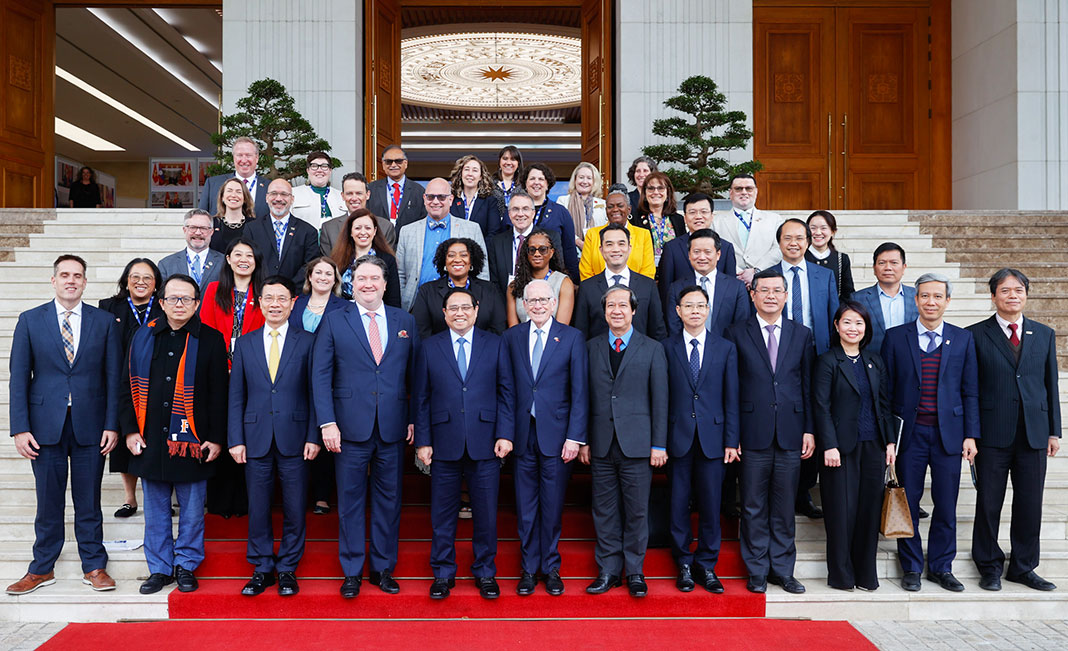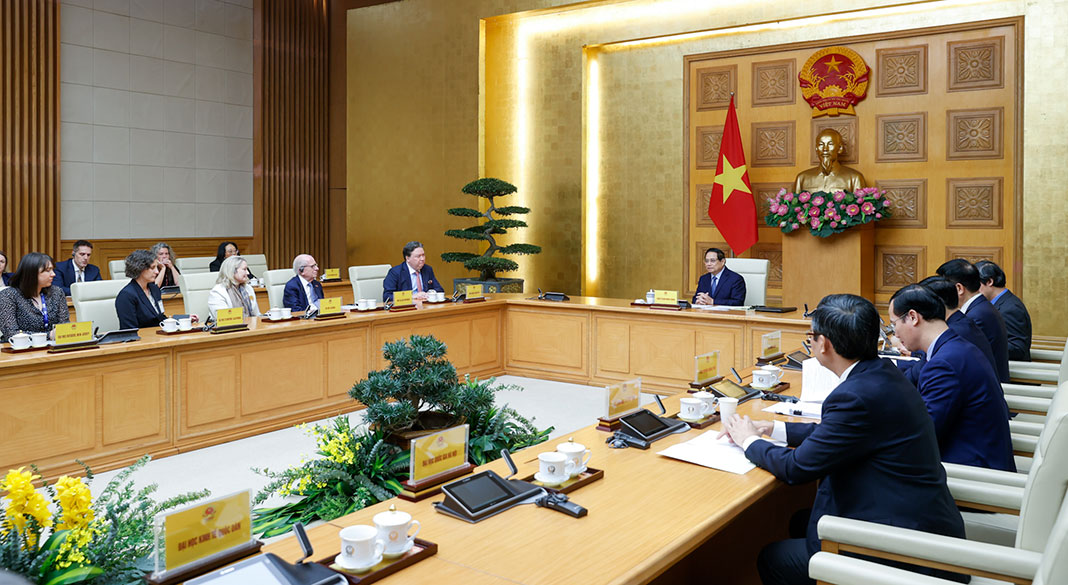HCMC – Vietnam’s Prime Minister Pham Minh Chinh has called for greater collaboration between Vietnamese and U.S. universities through concrete projects to develop education and labor skills in emerging sectors.
Chinh made the request during a meeting with representatives from 21 major U.S. universities attending the 2025 International Academic Partnership Program (IAPP) in Vietnam today, March 31. He encouraged joint training programs, faculty exchanges, and collaborative research in areas such as marine and space exploration and underground resource development.
Since the establishment of diplomatic relations 30 years ago, Vietnam and the U.S. have achieved significant milestones, with education and scientific cooperation emerging as key pillars.
Vietnam currently has around 30,000 students studying in the U.S., the fifth-largest group of international students there. About 50 joint training programs exist between Vietnamese and U.S. institutions, mainly at undergraduate and graduate levels.

Chinh highlighted Vietnam’s commitment to education reform, allocating up to 20% of its state budget to the sector. He also called on U.S. universities to expand scholarship programs and tuition incentives for Vietnamese students.
U.S. Ambassador to Vietnam Marc E. Knapper and U.S. university representatives expressed their appreciation for Vietnam’s educational development strategies and affirmed their readiness to support these efforts. Through the IAPP 2025, the participating universities from both countries will explore opportunities for practical and sustainable collaboration.
During the program, 21 U.S. universities and 30 Vietnamese institutions are set to discuss cooperation in various sectors, including STEM education, digital transformation, green transition, information and communication technology (ICT), semiconductors, artificial intelligence (AI), automation, biotechnology, advanced materials, green energy, international law, agriculture, sustainability, healthcare, education, Southeast Asia studies, and Vietnamese language studies.
Chinh also shared Vietnam’s ambitious economic goals, targeting GDP growth of 8% or higher in 2025 as a foundation for double-digit growth in the years to come. He said educational cooperation would play a crucial role in achieving these goals.
The Vietnamese prime minister urged U.S. universities to consider expanding scholarship programs and tuition aid for Vietnamese students and researchers.









